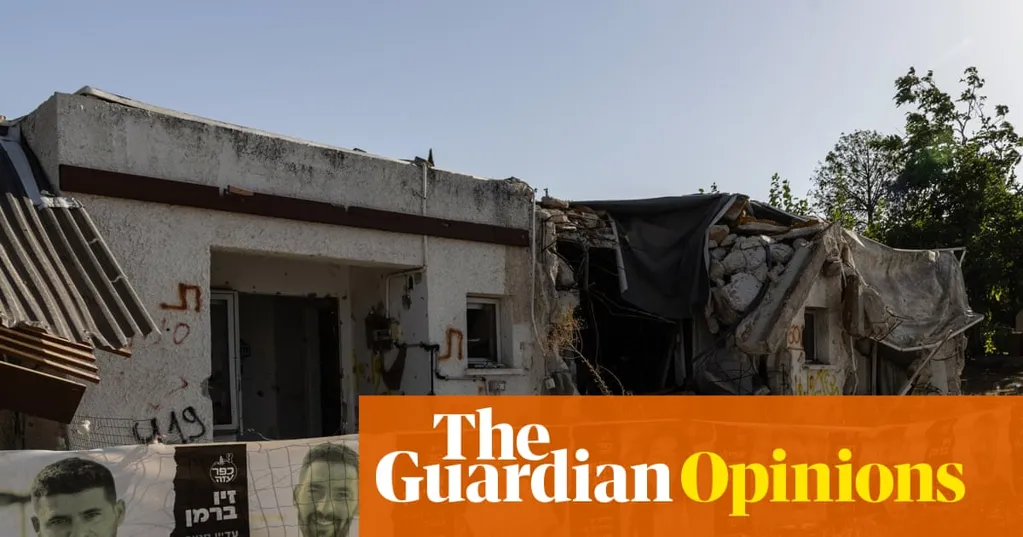Two years after the horrors of 7 October, few names evoke the tragedy more than Kfar Aza, a small, bucolic kibbutz less than two miles from Gaza that came under brutal attack that day.
For years, I visited Kfar Aza with groups of policymakers and American guests on trips designed to help them understand what life on the border meant and what a path toward conflict resolution might entail.
One of our occasional hosts in the town was Ofir Libstein, the head of the regional council - basically the mayor of the area. Ofir firmly believed that Israel's long-term security depended on a future for his Palestinian neighbors in Gaza as well. He was an activist and a public voice for the idea that stability for his region and constituents depended on achieving peace.
On 7 October 2023, he fought to defend his community and was among the first to die. In all, 62 residents of Kfar Aza were killed that day; 19 were taken hostage, including twin brothers Gali and Ziv Berman, who remain in Gaza to this day.
When I last visited the kibbutz this summer, I met one of Ofir's close friends, a man my age who survived by clinging to his safe-room door handle for hours while his neighbors were massacred. Despite everything, he told me peace must still be the path forward - that Palestinians in Gaza must be given something to live for. His words, and his refusal to surrender hope, moved me to tears.
Twenty-five years ago, while living in Israel and studying Hebrew, I befriended a classmate named Abed, an optometrist from Gaza City. He invited me to his family's home for dinner one weekend. Conversation was halting, limited by language, but the message conveyed by all I met was a desire for nothing more than to live normal lives, to raise families, work and coexist.
Over the years, friends, colleagues and I have heard similar stories from Palestinians in Gaza - teachers, doctors and entrepreneurs who remembered the days when there was interconnection between Gaza and Israeli border communities, when small but real human connections were possible.
In Kfar Aza, our hosts used to recall the time when Palestinians in Gaza worked in the kibbutz fields, and Israelis shopped in Gaza on weekends. Those ties are long severed.
The devastation of Kfar Aza - the kibbutz itself and the community - is almost impossible to comprehend. Yet what's even harder to grasp is that two years later, the war grinds on - hostages still in captivity, Gaza in ruins, Israelis traumatized and extremists on both sides still ascendant.
This moment calls for more than vengeance and endless war. It calls for vision - and courage.
That's why the proposal put forward last week by Donald Trump - initially embraced by regional partners and conditionally accepted by both Benjamin Netanyahu, the Israeli prime minister, and Hamas representatives - deserves close scrutiny and cautious hope. The broad outlines - a phased ceasefire, international administration of Gaza, Arab recognition of Israel tied to progress toward Palestinian self-governance and ultimately statehood - echo principles that those of us who are serious about conflict resolution have long understood must be part of any viable peace plan.
Skeptics are right to note that the devil is in the details and that implementation will be difficult. The many potential sticking points will include precisely how far Israeli troops will pull back, the mechanics of disarmament and the process of choosing acceptable Palestinian leadership in Gaza - just to name a few.
Both Hamas and the Israeli far right will do everything they can to torpedo the proposal. But the fact that a plan has emerged at all - that leaders are again speaking the language of diplomacy, coexistence and regional cooperation - gives reason for hope. Trump's personal desire to play the part of peacemaker should not be dismissed; it should be encouraged.
On this day when we remember one of the greatest tragedies in Israel's history - and mark the beginning of Gaza's devastation - it's vital that we recommit to the pursuit of peace.
Peace is not a naive and abstract ideal. It's pragmatic. It's the only durable path to security for Israelis and Palestinians alike. The alternative is endless war - one that will claim the next generation's future as surely as it claimed Ofir Libstein's and Abed's dreams.
Kfar Aza will forever be a place of unbearable loss. But for me it remains a reminder of what's worth fighting for: the belief that peace is not just possible; it's necessary; the understanding that the lives of Israelis and Palestinians are intertwined; and the memory that even amid the ruins there are people on both sides who refuse to give up.
Two years on, the question is whether their leaders are finally ready to listen.
